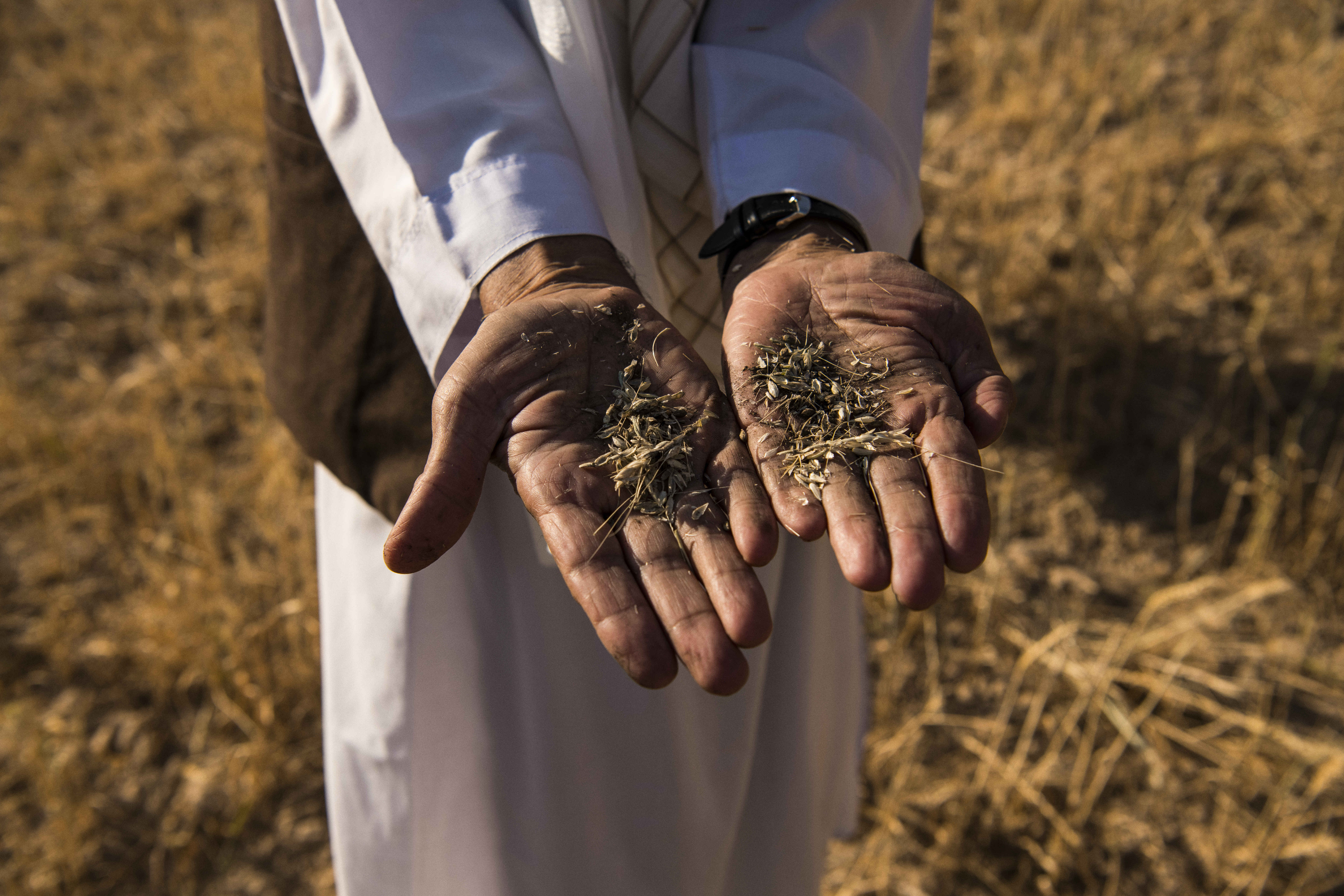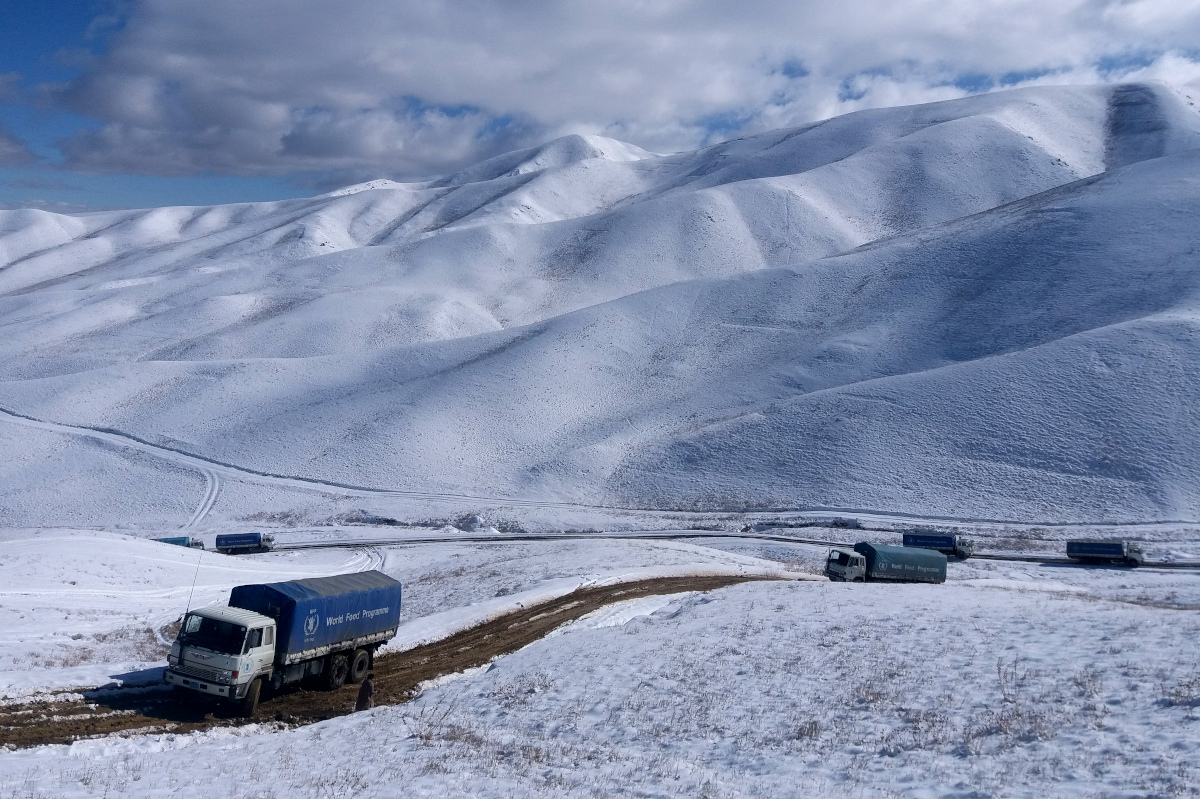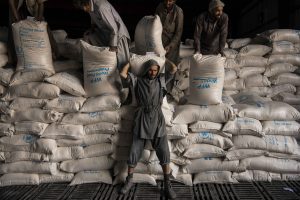The departure of foreign military forces from Afghanistan marks the end of another chapter in Afghanistan’s turbulent history. The chaotic scenes at the airport of people trying to board planes and the abhorrent suicide bombing conveyed the desperation and abandonment many Afghans feel.
But away from these scenes, there are millions and millions more children, women, and men across the country at the precipice of survival. Their foes are disease, disaster, and destitution. On the ground, we have a humanitarian crisis of incredible proportions unfolding before our eyes, a crisis that has grown in magnitude and complexity since the Taliban completed their takeover of Afghanistan and entered Kabul.
In the past year, civilian casualties reached record heights. Hundreds of thousands of people fled their homes. The Taliban’s swift conquest of Afghanistan’s cities brought an end to most fighting with government forces, but uncertainty and lawlessness remain.
Although out of the headlines, COVID-19 continues to overwhelm the country’s health systems and cripple livelihoods, even if testing and treatment has decreased.

Failed crop in the hands of a farmer. Afghanistan is once again gripped by drought – the second one in three years, and also conflict, and COVID. 1 in 3 Afghans – 14 million – are now facing hunger and need humanitarian assistance. May 20221 ©WFP/Arete/Andrew Quilty
Drought is again sparking anguish across the country, as farmers have lost 40 percent of their crops. Livestock has been devastated. Wells have run dry, and children are walking kilometers to fetch water that is often unsafe to drink. More than half of all Afghan families rely on agriculture for income. Without a harvest, there is no food nor jobs.
One in three Afghans are acutely food insecure. That’s 14 million people who can’t put enough food on the table and will go to bed with empty bellies.
Around this time every year, poor families start to see their food and money run out. This year’s lean season will start earlier and bite even harder than the last. World Food Program (WFP) assistance will be the only source of food for many in displacement camps, remote mountainous regions, farming communities, and the urban poor who have seen income diminish due to the pandemic and now the economic crisis strangling the country.
In these extraordinarily difficult times, families are forced to make desperate decisions. Parents are taking on debt to buy food or not eating at all. They’re leaving their homes to seek work and humanitarian relief.
At WFP, we knew 2021 would be a hard year. We had planned to reach 14 million people with food, cash, nutrition, and livelihood assistance — 30 percent more than the year before. In the first six months of 2021, WFP provided food and nutrition assistance to 5.5 million people.
Now the worst-case scenario is playing out right in front of our eyes. An even greater tide of hunger is at Afghanistan’s doorstep as food supplies dwindle and prices soar. With banks shut, even those in the middle class are struggling to buy food or pay for medicine. The government’s budget, which relied almost entirely on international development assistance, is paralyzed.
Despite the incredible difficulties, WFP distributions have continued in nearly all of our area offices, including Faizabad, Mazar-i-Sharif, Jalalabad, Kandahar, and Kabul. Since August 15, when the Taliban took Kabul, WFP has reached more than 150,000 people with food and helped prevent and treat malnutrition for mothers and children. We have brought in 600 metric tons of food and dozens of new trucks through border crossings in recent days.
WFP’s work is deeply rooted in the humanitarian principles of humanity, neutrality, impartiality, and most importantly operational independence. We will continue upholding these principles in Afghanistan as elsewhere.
To keep pace with growing needs, we — along with the broader international community — need to act now. Our main focus must be life-saving emergency food and nutrition assistance. In just a few weeks, our main food stock, wheat flour, will run out, followed by peas, cooking oil, and therapeutic foods for malnourished mothers and children.

Each winter, WFP food convoy traverse the country rugged terrain to deliver food to communities facing hunger. And this year, it will be a race against time to get food into the country and preposition at strategic locations. File photo © WFP
Winter is fast approaching and the race is on to get food into strategic locations in the country and distribute it to communities before roads are cut off by snow. We need $200 million to meet those needs between now and the end of the year.
If help does not arrive in time, more families may be driven to go looking for it. If that happens, we could see a much greater refugee outflow than we saw at the Kabul international airport.
Everything we have achieved, we have done with our partners on the ground, donors, U.N. sister agencies, and through the dedication of WFP staff. For our Afghan colleagues, this is an extraordinarily difficult time. Their dedication to humanitarian action deserves our unwavering support.
We are asking our partners to show the people of Afghanistan that they have not abandoned them either. Do not let despair and darkness engulf the heart of the old silk road.

































